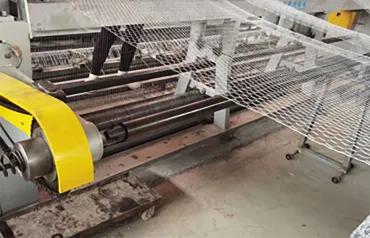10 月 . 12, 2024 05:47 Back to list
Suitable Fencing Options for Agricultural Land and Livestock Protection
The Importance of Fencing for Fields A Comprehensive Guide
Fencing plays a crucial role in the agricultural sector, particularly when it comes to securing fields. Farmers have long recognized the value of well-constructed fences in protecting their crops, livestock, and overall land integrity. This article explores the various types of fencing suitable for fields, their benefits, and considerations for installation.
Types of Fencing for Fields
1. Barbed Wire Fencing Barbed wire fencing is one of the most traditional and cost-effective methods for enclosing large areas of land. It consists of wire strands with sharp barbs that deter animals from crossing. This type of fencing is particularly useful for containing livestock and is easy to install and maintain. However, it may not be suitable for areas where wildlife protection is a priority, as it can harm smaller animals.
2. Electric Fencing Electric fencing has gained popularity for its effectiveness and versatility. It delivers a mild electric shock to animals that come into contact with it, serving as a strong deterrent. Electric fences can be adjusted in height and voltage to suit different livestock and wildlife encounters. They are ideal for both perimeter security and subdividing fields into smaller grazing areas, promoting better land management practices.
3. Wooden Fencing Wooden fencing provides a sturdy and aesthetically pleasing option for fields. While they can be more expensive than wire options, wooden fences are durable and can withstand harsh weather conditions. Their strength makes them ideal for larger livestock, though they require regular maintenance to prevent rot and decay.
4. Vinyl Fencing Vinyl fences are becoming increasingly popular due to their low maintenance requirements and longevity. Unlike wooden fences, vinyl doesn't rot, crack, or fade, making it an attractive long-term investment. This type of fencing is available in various styles and colors, allowing farmers to choose designs that complement their property while effectively marking boundaries.
Benefits of Fencing for Fields
Fencing provides multiple benefits that extend beyond containment. First and foremost, it enhances security. By creating a physical barrier, farmers can protect their crops from wildlife, such as deer and rabbits, that could otherwise devastate the harvest. Similarly, fencing helps keep livestock safe from predators, which is vital for maintaining animal health and farm productivity.
fence for field

In addition to security, fencing also aids in land management. By subdividing larger fields into smaller sections, farmers can implement rotational grazing practices. This method improves pasture health, reduces soil erosion, and promotes sustainable land use. Furthermore, fenced areas can be designated for specific crops, ensuring better crop rotation and pest management practices.
Considerations for Installation
When installing fencing for fields, several factors must be considered to ensure effectiveness and durability.
1. Terrain and Climate The type of terrain and local climate can greatly influence the choice of fencing material. For example, in rocky areas, wooden or vinyl fencing may be suitable, while electric fencing might succeed better in open plains.
2. Purpose Determine the primary purpose of the fence. Is it to keep livestock in, wildlife out, or both? This decision will guide the type of fencing and its specifications.
3. Budget Calculate the costs associated with materials, installation, and maintenance. While investing in higher-quality fencing may be more expensive initially, it can save money in the long run through reduced maintenance costs and increased property value.
4. Local Regulations Always check local zoning laws and regulations regarding fencing. Some areas may have restrictions on the height or type of fence that can be installed.
Conclusion
Fencing is an essential aspect of field management that provides security, aids in land conservation, and promotes agricultural sustainability. By carefully selecting the appropriate type of fencing based on the unique needs of the farmland, farmers can create effective barriers that protect their investments while ensuring long-term productivity. Whether through barbed wire, electric, wooden, or vinyl fencing, the right choice can make a significant difference in the success of agricultural operations.
-
Secure Your Roof with Quality Roofing Nails
NewsNov.04,2024
-
Secure Your Property with Quality Field Fencing
NewsNov.04,2024
-
Enhance Your Space with Quality Mesh Fencing
NewsNov.04,2024
-
Discover the Versatility of Iron Wire for Your Projects
NewsNov.04,2024
-
Discover the Versatility of Common Nails for Your Projects
NewsNov.04,2024
-
Discover Quality Hydraulic Fittings for Your Applications
NewsNov.04,2024









